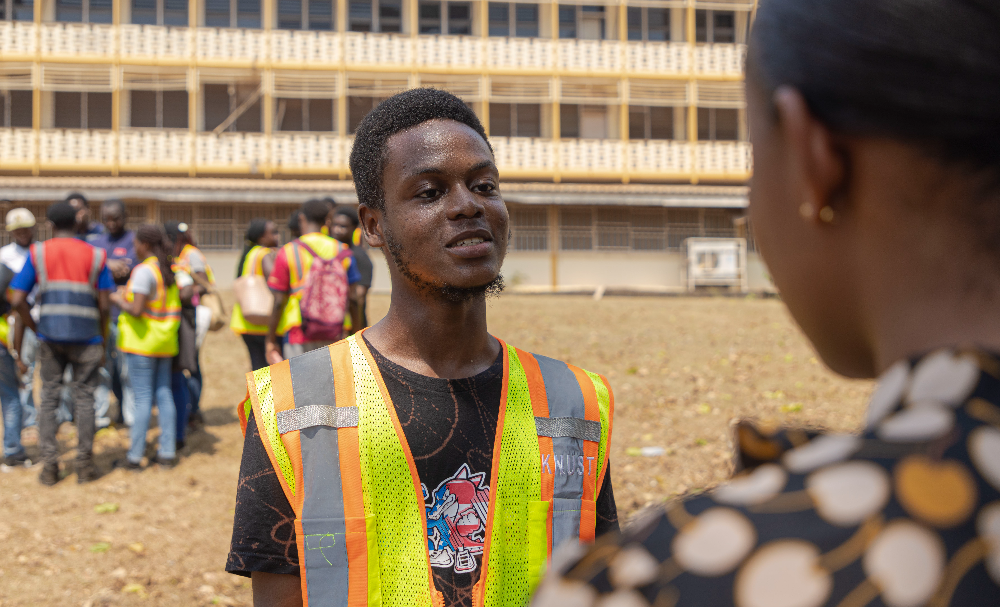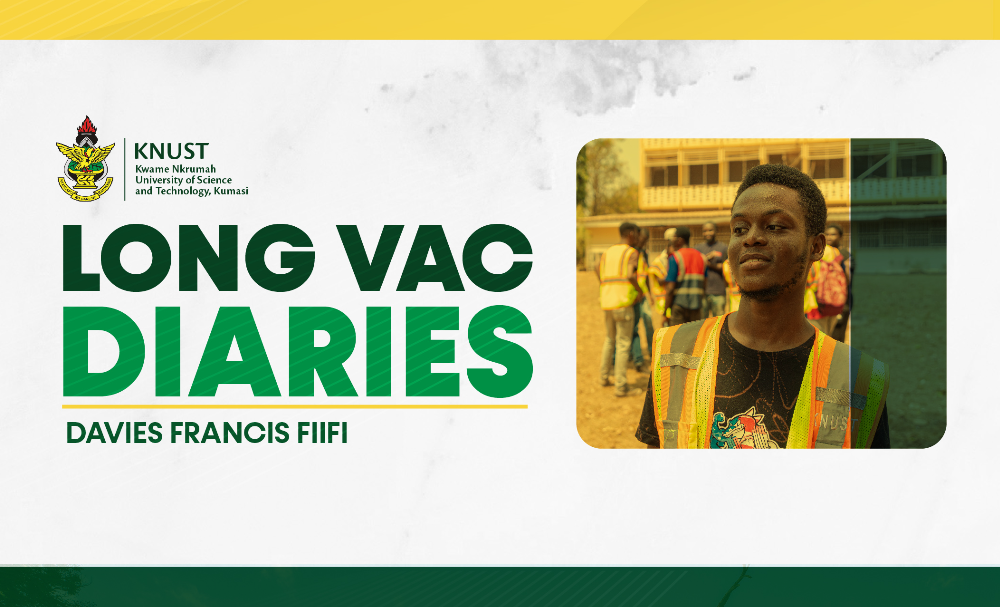Francis Fiifi, a third-year Civil Engineering student, faced a common dilemma: the choice between a coveted internship and the pressing need for income during his vacation.
For tertiary students, vacation periods often come with the expectation of internships, experiences meant to bridge the gap between academic knowledge and real-world application.
These opportunities are seen as vital for professional growth and networking, but for some, the choice isn't so straightforward.
Davies Francis Fiifi, a third-year Civil Engineering student, took an unconventional route by opting for a job instead of an internship. While many of his peers flocked to corporate internships, Francis’s decision was driven by a need to support himself financially.
Francis’s work during the vacation months wasn’t just any typical job. He first took up script checking for the West African Examinations Council (WAEC) for the Basic Education Certificate Examination (BECE). Later, he repeated this role for the West African Senior School Certificate Examination (WASSCE). Additionally, in December, during the election period, Francis worked as an Electoral Commission Officer for the Cape Coast North Constituency.
“It’s an extra incentive. It helps me a lot,” Francis explains, highlighting the importance of these roles in supporting his finances. His earnings reflect the varying nature of the work: “For BECE I was paid GhȻ 1,300, for WASSCE I earned GhȻ 2,300, and for the EC role, I was paid GhȻ 600.”
Francis’s decision not to pursue an internship during this vacation wasn’t out of disregard for its importance. One of his courses requires a compulsory internship, but he made a pragmatic choice:
“I decided that if I’m going to have a compulsory internship, anyway, why not work for some money now and do the internship later?”

This practical decision to prioritize immediate financial needs over the traditional internship route reflects a reality faced by many students. The pursuit of academic knowledge often intersects with the necessity of supporting oneself, leading to alternative choices like Francis’s.
In navigating the balance between work and study, Francis demonstrates the broader challenge that many students face, choosing between conventional expectations and immediate, personal needs. While internships may be the standard, sometimes the need for financial independence leads students like him to chart their own course, a decision that reflects both adaptability and resilience in a world where students must juggle multiple priorities.
Story by Edith Asravor (URO) | Photo by Emmanuel Offei (URO)

















